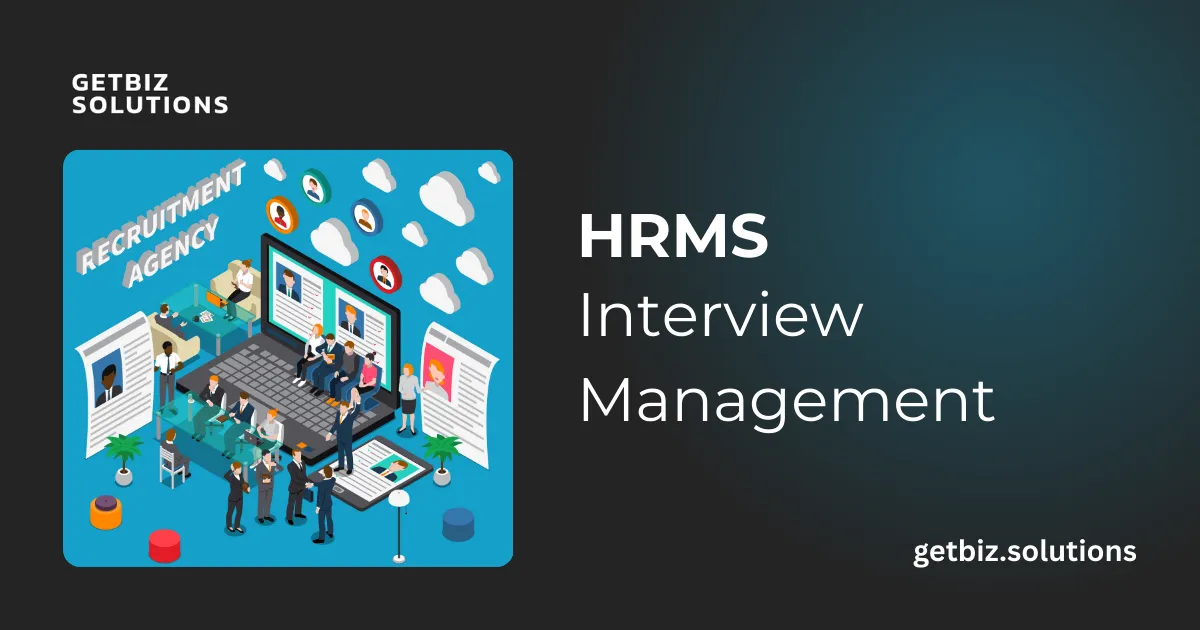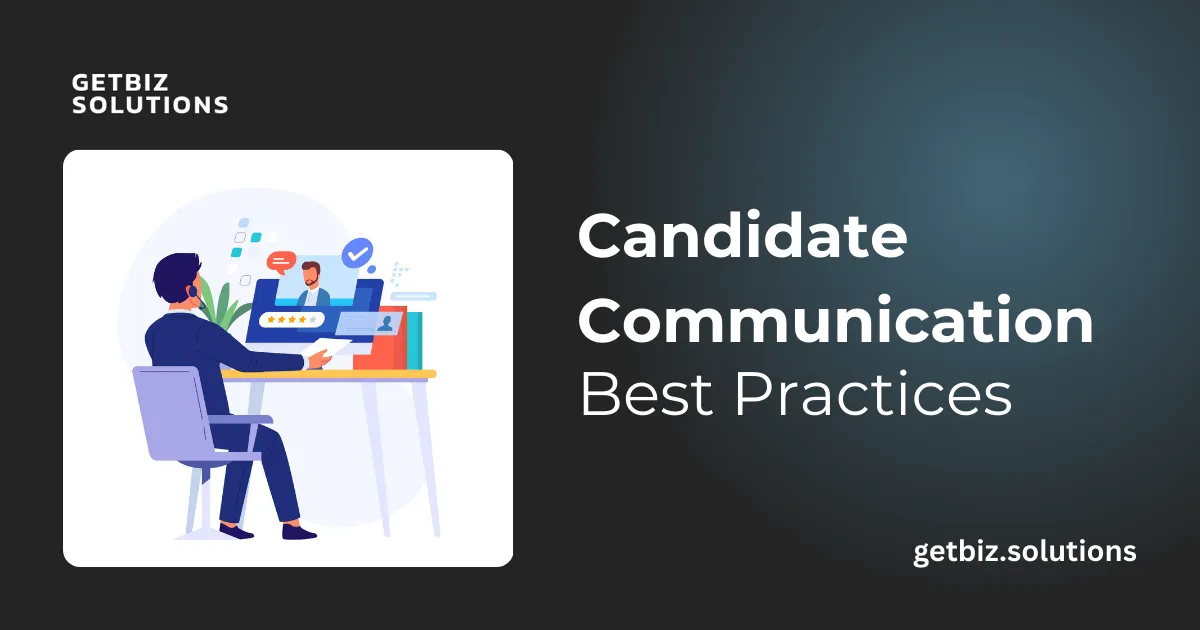Interview Management Strategies for Efficient and Fair Hiring

Overview
- QuickSummary
- Why Interview Management Matters
- Key Components of Effective Interview Management
- Leveraging Technology in Interview Management
- Best Practices for Interview Management
- Advanced Interview Management Strategies
- Interviewer Training & Calibration
- Designing Better Interview Questions
- Diversity and Inclusion in Interviewing
- Following Up with Candidates
- The Role of AI in Interview Management
- Interview Panel Coordination
- Interview Experience as a Branding Opportunity
- Post-Interview Data Utilization
- Remote Interview Best Practices
- Final Thoughts
QuickSummary
In today's competitive job market, efficient and structured interview management is crucial for attracting and securing top talent. From scheduling to feedback, every step should be optimized to enhance candidate experience and ensure consistent hiring outcomes.
Why Interview Management Matters
An effective interview management system ensures:
- Consistency: Standardized processes reduce bias and improve fairness.
- Efficiency: Automation saves time for both recruiters and candidates.
- Candidate Experience: Clear communication and timely feedback enhance your employer brand.
Key Components of Effective Interview Management
1. Structured Interview Process
Implementing a structured interview process helps in:
- Standardizing Questions: Asking the same set of questions to all candidates ensures fairness.
- Objective Evaluation: Using predefined criteria and scorecards aids in unbiased assessments.
- Compliance: Adhering to legal and organizational standards throughout the interview process.
2. Automated Scheduling
Automating interview scheduling can:
- Reduce Back-and-Forth: Allow candidates to choose available slots, minimizing coordination efforts.
- Integrate Calendars: Sync with platforms like Google and Outlook for real-time availability.
- Send Reminders: Automated notifications ensure participants are informed and prepared.
3. Candidate Communication
Maintaining clear and timely communication:
- Keeps Candidates Engaged: Regular updates prevent uncertainty.
- Sets Expectations: Informing candidates about the process stages builds trust.
- Provides Feedback: Constructive feedback, even when not selected, enhances your company's reputation.
Insight: Consistent communication improves the brand image, increasing trust and online reviews.
4. Feedback Collection
Gathering feedback post-interview:
- Improves Processes: Insights from candidates and interviewers can highlight areas for improvement.
- Enhances Experience: Shows candidates that their opinions are valued.
- Informs Decisions: Helps in refining interview questions and evaluation criteria.
Leveraging Technology in Interview Management
Modern interview management systems offer:
- Integration with ATS: Seamless data flow between applicant tracking and interview scheduling.
- Analytics and Reporting: Track metrics like time-to-hire and candidate satisfaction.
- Customization: Tailor workflows to fit organizational needs.
Best Practices for Interview Management
- Train Interviewers: Regular training ensures interviewers are aligned with best practices.
- Use Scorecards: Standardized evaluation forms promote objective assessments.
- Maintain Flexibility: While structure is essential, allow room for genuine conversations.
- Ensure Inclusivity: Be mindful of diverse backgrounds and experiences.
Advanced Interview Management Strategies
Interviewer Training & Calibration
Ensuring your interviewers are well-trained and calibrated is key to consistent hiring decisions:
- Regular Workshops: Conduct training sessions to align interviewers on company values, legal compliance, and evaluation criteria.
- Mock Interviews: Practice sessions help interviewers refine their questioning and scoring techniques.
- Calibration Meetings: Panel members compare scoring to reduce variability and bias.
🎯 Tip: Keep a shared guidebook or checklist for interviewers to reference during interviews.
Designing Effective Interview Questions
Good questions lead to insightful answers:
- Behavioral Questions: Ask candidates to describe past experiences to assess problem-solving and interpersonal skills.
- Situational Questions: Present hypothetical scenarios to evaluate critical thinking and adaptability.
- Role-Specific Questions: Focus on technical knowledge and competencies relevant to the job.
💡 Insight: Avoid overly generic questions; tailor questions to the role and company culture.
Ensuring Diversity & Inclusion in Interviews
A diverse team drives innovation and performance:
- Structured Scoring: Use rubrics to minimize unconscious bias.
- Panel Diversity: Include interviewers from different backgrounds.
- Inclusive Language: Frame questions and feedback respectfully, avoiding stereotypes.
🌍 Fact: Inclusive hiring improves team dynamics and company reputation.
Follow-Up & Candidate Engagement Post-Interview
Keeping candidates engaged even after the interview is crucial:
- Timely Updates: Communicate decisions as soon as possible.
- Constructive Feedback: Provide helpful feedback to candidates who weren’t selected.
- Talent Pooling: Keep records of strong candidates for future opportunities.
🔄 Best Practice: Use automated workflows to manage follow-ups efficiently.
Measuring Interview Effectiveness
Continuously improving your interview process requires measurement:
- Candidate Feedback Surveys: Collect candidate input on their experience.
- Hiring Metrics: Track time-to-hire, offer acceptance rate, and interviewer consistency.
- Quality of Hire: Evaluate new hire performance and retention.
📈 Pro Tip: Use analytics dashboards to visualize trends and identify bottlenecks.
Interviewer Training & Calibration
A well-trained interviewing team ensures that the hiring process is fair, structured, and effective.
- Calibration Sessions: Regularly align interviewers with hiring managers on role expectations and scoring standards.
- Bias Awareness Training: Help interviewers recognize and mitigate unconscious bias.
- Mock Interviews: Practice sessions improve consistency, especially for new interviewers.
🎓 Tip: Use GetBiz’s built-in training modules to onboard new interviewers quickly and efficiently.
Designing Better Interview Questions
Crafting the right questions can make or break an interview.
- Behavioral Questions: Use STAR-based questions to evaluate past performance (e.g., “Tell me about a time you handled a difficult client.”).
- Role-Specific Scenarios: Ask how candidates would handle real challenges they’ll face in the role.
- Avoid Hypotheticals: Focus on what candidates have done, not what they would do in theory.
🧠 Note: Use the GetBiz Interview question library or customize your own sets for repeatable, role-specific interviews.
Diversity and Inclusion in Interviewing
Make sure your interview process supports diversity and equal opportunity.
- Inclusive Language: Use gender-neutral and culturally sensitive language in communication and questions.
- Diverse Panels: Representation on interview panels sends a strong message about your values.
- Equity in Evaluation: Use structured scoring systems to reduce favoritism and bias.
🌍 Best Practice: GetBiz enables anonymized scorecard reviews to support unbiased decision-making.
Following Up with Candidates
The post-interview phase is as important as the interview itself.
- Timely Responses: Let candidates know the outcome quickly—even if it’s a rejection.
- Constructive Feedback: Offer helpful feedback that allows candidates to grow.
- Talent Community: Keep promising candidates in your database for future opportunities.
📬 Reminder: With GetBiz, schedule automated follow-ups or add candidates to nurture campaigns with one click.
The Role of AI in Interview Management
Artificial Intelligence (AI) is revolutionizing the way interviews are conducted and managed:
- AI-Based Screening: Tools can analyze resumes and applications to shortlist qualified candidates.
- Chatbots for Initial Rounds: Automate initial interactions and collect pre-interview information.
- Video Analysis: AI can analyze candidate expressions and tone during video interviews to assist in evaluation.
🤖 Trend Alert: AI-driven platforms help reduce unconscious bias and speed up decision-making without compromising quality.

Interview Panel Coordination
Effective coordination among panel members leads to:
- Reduced Delays: Pre-aligning on availability avoids last-minute cancellations.
- Clear Role Assignment: Each panelist focuses on specific evaluation areas.
- Consistent Reporting: Consolidated scorecards streamline the final decision process.
📌 Suggestion: Use collaborative tools to align panel expectations before the interview begins.
Interview Experience as a Branding Opportunity
The way candidates are treated during interviews directly reflects your company culture:
- Transparent Processes: Let candidates know what's next.
- Respect for Time: Avoid unnecessary delays and value the candidate’s schedule.
- Personalization: Address candidates by name, reference their experience, and make the process feel human.
🌟 Fact: A positive interview experience can turn even rejected candidates into brand advocates.
Post-Interview Data Utilization
Make the most of interview outcomes by:
- Identifying Talent Pools: Retain strong candidates for future roles.
- Analyzing Hiring Metrics: Evaluate success rates, time-to-hire, and drop-off points.
- Improving Strategy: Use insights to refine interview formats, question sets, or panel structures.
📈 Pro Tip: Use dashboards that centralize all candidate data for easy analysis and decision-making.
Remote Interview Best Practices
With remote hiring now a norm, optimize virtual interviews by:
- Testing Technology in Advance: Ensure stable internet, working microphones, and platforms like Zoom or Teams are ready.
- Creating a Professional Virtual Setup: Both interviewers and candidates should be in distraction-free environments.
- Building Rapport Remotely: Smile, maintain eye contact via camera, and open with casual conversation.
💡 Insight: Send a pre-interview checklist to help candidates prepare for remote formats.
Frequently Asked Questions
How does GetBiz automate interview scheduling?
Can interviewers use standardized evaluation forms?
Does GetBiz support feedback collection?
Is it possible to customize interview workflows?
Can communication be automated?
How does GetBiz help reduce interview bias?
Does GetBiz support remote interviews?
Can I integrate GetBiz with my existing ATS?
What kind of analytics does GetBiz provide?
Is GetBiz suitable for small businesses?
Final Thoughts
Effective interview management is a blend of structured processes, clear communication, and the right technology. By focusing on these areas, organizations can enhance candidate experience, reduce time-to-hire, and make informed hiring decisions.


